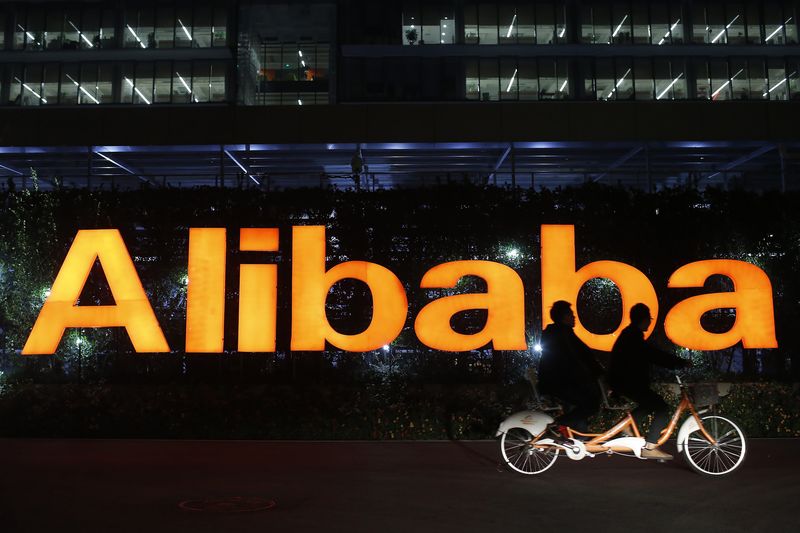(Bloomberg) -- Alibaba (NYSE:BABA) Group Holding Ltd.’s quarterly revenue beat the highest analysts’ estimates after personalized shopping recommendations and a June sales bonanza drove China’s leading online retail business.
Revenue at Asia’s biggest company rose 42% to 114.9 billion yuan ($16.3 billion) in the three months ended June. That compares with the 111.6 billion yuan average of estimates compiled by Bloomberg. Adjusted earnings per share came to 12.55 yuan versus the 10.3 yuan projected.
Alibaba, whose business is predominantly domestic, is riding a surge in internet shopping in defiance of a slowing home economy. Chinese online sales accelerated in the June quarter from the previous three months, helped by sales promotions that unfolded across the country’s largest e-commerce platforms. Alibaba is also fine-tuning services that target buyers based on personal preferences, introducing tweaks to product feeds for instance to boost ad revenue and buying.
“E-commerce growth remained strong in the second quarter,” David Dai, a Hong Kong-based analyst with Bernstein, said in a report before the earnings release. “We expect Alibaba user and transaction growth to accelerate in the second quarter.”
Alibaba is approaching a critical juncture just as Chief Executive Officer Daniel Zhang prepares to replace billionaire founder Jack Ma as chairman in September. A U.S. campaign of tariffs and other curbs is heightening uncertainty around the world’s second-largest economy, while the emergence of rivals at home such as Pinduoduo Inc. tests its longstanding dominance of Chinese online retail.
The e-commerce titan may be on the look-out for assets to bolster its lead. Alibaba is in talks to pay $2 billion for NetEase (NASDAQ:NTES) Inc.’s Kaola, which specializes in selling foreign goods to Chinese consumers, local media outlet Caixin reported.
The company is also hatching plans to raise more capital. Alibaba’s quarterly out-performance bolsters its ambition of pulling off what could be Hong Kong’s biggest share sale since 2010. The company is said to have already filed confidentially for a stock listing, but it’s unclear when it might go ahead with the float given the widespread protests that have gripped Hong Kong over the past 11 weeks.
